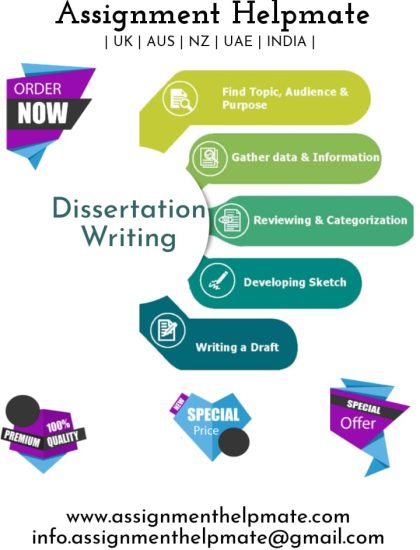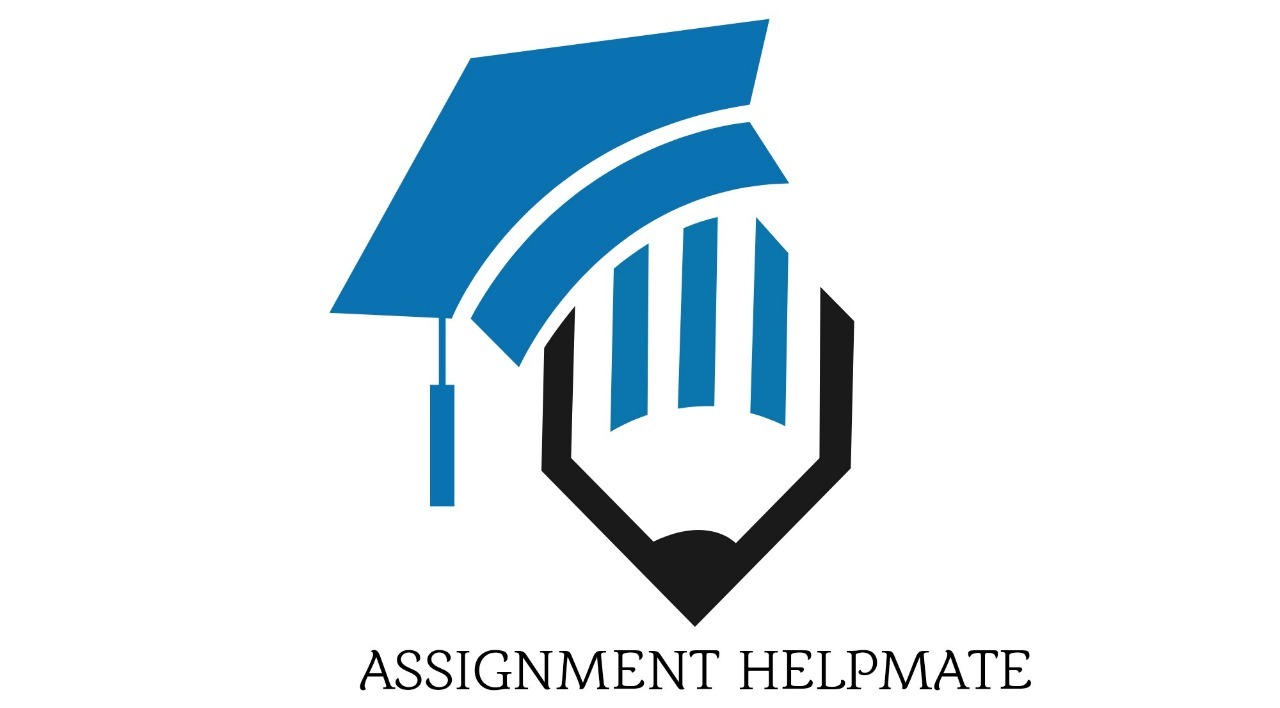
Dissertation Writing Services
In Dissertation writing services Assignment Helpmate provides unique assistance to the students, who are willing to undertake higher studies and they mainly face problems to render the finest dissertation paper for their final year submission. Keeping in view the matter as a serious concern for a student’s career, Assignment Helpmate provides online assignment writing help in our Dissertation writing services. We have got ourselves devoted to generating professional assignment help for the students to make an efficient and phenomenal dissertation paper to get a good grade in the final year of their academics. We know that students who are pursuing Ph.D. or MA programs for them their entire four to five years of academics depend on the dissertation paper and the efforts they have committed to survive the journey. Many students fail to get the desired outcomes and live a frustrated life, as they are unable to complete the most crucial part of the dissertation paper- or even it has been witnessed that they have missed the important subject matter of the dissertation paper. We know the problem, so we strive to provide them with the best dissertation paper within a limited time frame. We have got the capacity to generate creativity from our writers, who have been into this scenario before and their implementation makes a student’s grade card outstanding in grades. We have not only restricted ourselves to complete a dissertation paper but also we provide our assistance in proofreading services online for making the dissertation paper finest as compared to any other submission. Assignment Helpmate online assignment writing also renders proofreading onlinefor the students to make a cross-check of the paper that we have developed on behalf of the student. We also provide plagiarism-free dissertation writing and we provide the final report while delivering the final dissertation paper on the hand of the student.
Dissertation Writing Services
Quality Online Dissertation Help by PhD Experts in AUS, UK, USA Etc.:-
If you are a student who is pursuing graduation, post graduation or PhD then dissertation like assignments will occupy a significant portion of your curriculum. In this era of fierce competition students are involved in innumerable activities. This proves to be an obstacle for you to prepare dissertation within a stipulated time-period. Upon several years of interaction with thousands of students what we understand is that students like you, often fail to meet deadlines and thus fail to achieve grades necessary for a semester. If you are facing a similar situation then consider connecting with our experts at Assignment Helpmate and avail Dissertation Help Online. Our hired experts provide impeccable services under Dissertation Online Help in a dissertation which not only helps you in writing but also fetching best grades.
How to Choose a Dissertation Topic and write Research Proposal?
Picking the exposition theme can threaten for some understudies. The understudies need to pick such Dissertation points through which they can abuse their insight and furthermore show the thoughts certainly. As needs be picking a dull or a wrong theme can be shocking. In this way, it is vital that understudies pick their Dissertation help topics accurately. In the event that they can’t, they can take the thesis and dissertation help benefit.
Topic Selection: The first and the most critical part of doing a dissertation is the topic selection. It is highly essential that the dissertation writer should make a wise choice of topic because it helps in perfectly completing the dissertation to score best marks. Since the dissertation is a long piece of work that requires months, it is important to make the best selection of a topic that can be researched well to generate new findings. The selection of topics should be performed in such a way that it can be researchable to a great extent. A dissertation is generally a research work that requires the expert to find out something new or prove a real phenomenon, by way of doing thorough research. It is therefore essential to select a topic that has vast potential to reveal important findings.
Research Proposal: Research proposal is the best way of submitting a topic for approval. After making the selection of a topic, it is important to get it approved from the dissertation supervisors. This can be positively achieved by way of making a research proposal. A research proposal is generally a short format of long dissertation whereby the expert proposes the things that he/she will carry out while conducting the entire research. Research proposal introduces the topic and provides the research objectives that will be accomplished by carrying out the complete study. It comprises of a proposed research methodology that will be carried out while conducting the primary research. A proposal also lists out the expected outcome from carrying out the research work and also includes an ethical form that lists out the fulfillment of moral obligation while carrying out the research. It is therefore important to properly craft a research proposal so that supervisors can accept the proposed topic, and it will be best to proceed toward starting the research work on the selected topic.
Tips to Design the Best Structure of a Dissertation:

Dissertation comprises of several sections which provide scope for exploring a topic in all its aspects, before explaining the chapters it is important to know that every dissertation follows a proposal; a proposal is an initial step which provides a layout of the dissertation. In a chronological structure, it projects what and how the writer will initiate the dissertation. Research proposal contains Introduction, Objectives and aims, Literature Review and Methodology. Assignment Helpmate experts provide the Best Dissertation Help.
Only after a proposal is accepted can a dissertation be initiated, thus it is very important for you to maintain clarity in a proposal. So, get your Dissertation Help Services today. In successfully completing a dissertation, there are many such factors that should be cleared enough to the dissertation writer in achieving success. Some of the important points that dissertation writers must know while providing dissertation help are indicated below:
Title page
The very first page of your document contains your dissertation’s title, your name, department, institution, degree program, and submission date. Sometimes it also includes your student number, your supervisor’s name, and the university’s logo. Many programs have strict requirements for formatting the dissertation title page.
Acknowledgements
The acknowledgements section is usually optional, and gives space for you to thank everyone who helped you in writing your dissertation. This might include your supervisors, participants in your research, and friends or family who supported you.
Abstract
The abstract is a short summary of your dissertation. You should write it at the very end, when you’ve completed the rest of the dissertation. In the abstract, make sure to:
- State the main topic and aims of your research
- Describe the methods you used
- Summarize the main results
- State your conclusions
Table of Contents
In the table of contents, list all of your chapters and subheadings and their page numbers. The dissertation contents page gives the reader an overview of your structure and helps easily navigate the document. All parts of your dissertation should be included in the table of contents, including the appendices.
List of Figures and Tables
If you have used a lot of tables and figures in your dissertation, you should itemize them in a numbered list. You can automatically generate this list using the Insert Caption feature in Word.
List of Abbreviations
If you have used a lot of abbreviations in your dissertation, you can include them in an alphabetized list of abbreviations so that the reader can easily look up their meanings.
Introduction
In the introduction, you set up your dissertation’s topic, purpose, and relevance, and tell the reader what to expect in the rest of the dissertation. The introduction should:
- Establish your research topic, giving necessary background information to contextualize your work
- Narrow down the focus and define the scope of the research
- Discuss the state of existing research on the topic, showing your work’s relevance to a broader problem or debate
- Clearly state your research questions and objectives
- Give an overview of your dissertation’s structure
Everything in the introduction should be clear, engaging, and relevant to your research. By the end, the reader should understand the what, why and how of your research.
Literature review / Theoretical framework
Before you start on your research, you should have conducted a literature review to gain a thorough understanding of the academic work that already exists on your topic. This means:
- Collecting sources (e.g. books and journal articles) and selecting the most relevant ones
- Critically evaluating and analyzing each source
- Drawing connections between them (e.g. themes, patterns, conflicts, gaps) to make an overall point
In the dissertation literature review chapter or section, you shouldn’t just summarize existing studies, but develop a coherent structure and argument that leads to a clear basis or justification for your own research. For example, it might aim to show how your research:
- Addresses a gap in the literature
- Takes a new theoretical or methodological approach to the topic
- Proposes a solution to an unresolved problem
- Advances a theoretical debate
- Builds on and strengthens existing knowledge with new data
The literature review often becomes the basis for a theoretical framework, in which you define and analyze the key theories, concepts and models that frame your research. In this section you can answer descriptive research questions about the relationship between concepts or variables.
Methodology
The methodology chapter or section describes how you conducted your research, allowing your reader to assess its validity. You should generally include:
- The overall approach and type of research (e.g. qualitative, quantitative, experimental, ethnographic)
- Your methods of collecting data (e.g. interviews, surveys, archives)
- Details of where, when, and with whom the research took place
- Your methods of analyzing data (e.g. statistical analysis, discourse analysis)
- Tools and materials you used (e.g. computer programs, lab equipment)
- A discussion of any obstacles you faced in conducting the research and how you overcame them
- An evaluation or justification of your methods
Your aim in the methodology is to accurately report what you did, as well as convincing the reader that this was the best approach to answering your research questions or objectives.
Results & Discussion / Data Analysis
Next, you report the results of your research. You can structure this section around sub-questions, hypotheses, or topics. Only report results that are relevant to your objectives and research questions. In some disciplines, the results section is strictly separated from the discussion, while in others the two are combined.
For example, for qualitative methods like in-depth interviews, the presentation of the data will often be woven together with discussion and analysis, while in quantitative and experimental research, the results should be presented separately before you discuss their meaning. If you’re unsure, consult with your supervisor and look at sample dissertations to find out the best structure for your research.
In the results section it can often be helpful to include tables, graphs and charts. Think carefully about how best to present your data, and don’t include tables or figures that just repeat what you have written – they should provide extra information or usefully visualize the results in a way that adds value to your text.
Full versions of your data (such as interview transcripts) can be included as an appendix.
Discussion
The discussion is where you explore the meaning and implications of your results in relation to your research questions. Here you should interpret the results in detail, discussing whether they met your expectations and how well they fit with the framework that you built in earlier chapters. If any of the results were unexpected, offer explanations for why this might be. It’s a good idea to consider alternative interpretations of your data and discuss any limitations that might have influenced the results.
The discussion should reference other scholarly work to show how your results fit with existing knowledge. You can also make recommendations for future research or practical action.
Conclusion
The dissertation conclusion should concisely answer the main research question, leaving the reader with a clear understanding of your central argument. In some academic conventions, the conclusion refers to a short section that comes before the discussion: first you directly state your overall conclusions, then you discuss and interpret their meaning. In other contexts, however, the conclusion refers to the final chapter, where you wrap up your dissertation with a final reflection on what you did and how you did it. This type of conclusion often also includes recommendations for research or practice.
Reference list
You must include full details of all sources that you have cited in a reference list (sometimes also called a works cited list or bibliography). It’s important to follow a consistent citation style. Each style has strict and specific requirements for how to format your sources in the reference list.
Common styles include APA, MLA, Harvard, but your program will often specify which citation style you should use – make sure to check the requirements, and ask your supervisor if you’re unsure.
Appendices
Your dissertation itself should contain only essential information that directly contributes to answering your research question. Documents you have used that do not fit into the main body of your dissertation (such as interview transcripts, survey questions or tables with full figures) can be added as appendices.
Editing and Proofreading
Making sure all the sections are
in the right place is only the first step to a well-written dissertation. Leave
plenty of time for editing and proofreading. Grammar mistakes and sloppy
formatting errors can drag down the quality of your hard work.
You should plan to write and
revise several drafts of your thesis or dissertation before focusing
on language mistakes, typos and inconsistencies.
